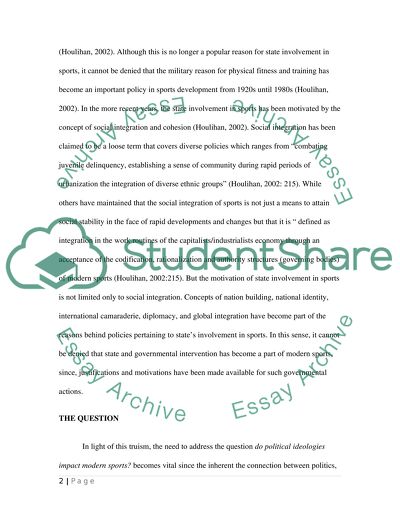Cite this document
(Interventions of the UK Government in Sports Policy Case Study, n.d.)
Interventions of the UK Government in Sports Policy Case Study. Retrieved from https://studentshare.org/politics/1569086-evaluate-critically-the-historical-development-of-the-interventions-of-the-uk-government-in-sports-policy-do-political-ideologies-impact-modern-sport
Interventions of the UK Government in Sports Policy Case Study. Retrieved from https://studentshare.org/politics/1569086-evaluate-critically-the-historical-development-of-the-interventions-of-the-uk-government-in-sports-policy-do-political-ideologies-impact-modern-sport
(Interventions of the UK Government in Sports Policy Case Study)
Interventions of the UK Government in Sports Policy Case Study. https://studentshare.org/politics/1569086-evaluate-critically-the-historical-development-of-the-interventions-of-the-uk-government-in-sports-policy-do-political-ideologies-impact-modern-sport.
Interventions of the UK Government in Sports Policy Case Study. https://studentshare.org/politics/1569086-evaluate-critically-the-historical-development-of-the-interventions-of-the-uk-government-in-sports-policy-do-political-ideologies-impact-modern-sport.
“Interventions of the UK Government in Sports Policy Case Study”. https://studentshare.org/politics/1569086-evaluate-critically-the-historical-development-of-the-interventions-of-the-uk-government-in-sports-policy-do-political-ideologies-impact-modern-sport.


